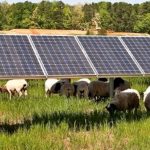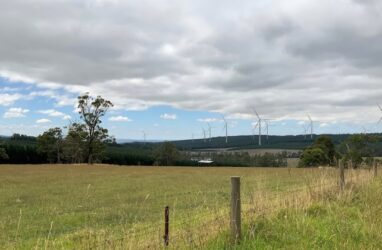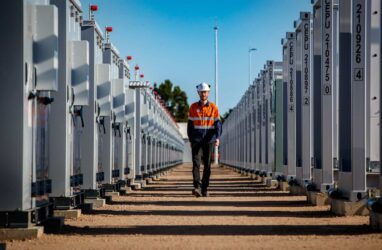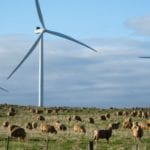Feed aggregator
COP28: Global Stocktake avoids fossil phaseout language in historic final text, but paves way forward
Critical or concerning? Cop28 debates role of carbon markets in climate crisis
Supporters say carbon credits can fund solutions, but others say they allow companies to avoid reducing emissions
Government officials, conservation organisations and industry groups have sought to revive confidence in the unregulated voluntary carbon market at Cop28 amid concerns it does little to mitigate the climate crisis or the destruction of nature.
Supporters of carbon markets say that through buying high-quality credits, countries and companies can transfer some of the billions of dollars required to fund nature-based solutions, support Indigenous communities, phase out coal power, and pay for new renewables in developing countries. Initiatives are under way to certify successful carbon projects and curb greenwashing claims from companies that buy credits, although there is disagreement about the appropriate role of offsets in a company’s sustainability efforts.
Continue reading...Cop28 live: draft text receives mixed reactions after calling for ‘transition away’ from fossil fuels
The organisers of the Dubai summit have been working on a new version of the global stocktake after the first draft met with strong criticism
Ed King, a veteran watcher of climate diplomacy, has listed the following key takeaways on the new text:
In terms of signalling the end of the fossil fuel era it’s an improvement on the last GST text but the bar was so low it could hardly be worse.
There are clear signals that countries agree fossil fuels need to be replaced by clean energy with 2050 as the target year for global net zero.
References to transition fuels being essential could have been written by a major gas producer. The science is clear: gas is a methane heavy fossil fuel, not a transition fuel.
There is support for tripling clean energy by 2030 and doubling energy efficiency as well as recognition that the costs of renewables are falling fast
There is repetition of Cop26 language on coal and emphasis that the new set of national climate pledges should be delivered from late 2024
There is very little on finance and – frankly – worrying language on the role of carbon offsets: many poor countries will see this as a text that throws them under the bus
Critically, given 2024 will be a very hard year, a “Road map to mission 1.5C” will be launched to enhance international cooperation on the way to Cop30 in Brazil. The UN is banking on Lula to lead.
Continue reading...Cop28 squibs on fossil fuel phase out, but calls for quick transition
 Latest COP28 text squibs on phase out of fossil fuels, mentioning only "unabated" coal but falling short on gas and oil as the petrol-states hold court.
Latest COP28 text squibs on phase out of fossil fuels, mentioning only "unabated" coal but falling short on gas and oil as the petrol-states hold court.
The post Cop28 squibs on fossil fuel phase out, but calls for quick transition appeared first on RenewEconomy.
Cop28: second draft text of climate deal calls for ‘transitioning away’ from fossil fuels
Latest draft does not include a commitment to phase out or phase down fossil fuels, as many countries, civil society groups and scientists have urged
A new draft climate agreement released at the Cop28 climate summit in the United Arab Emirates has for the first time explicitly called on nations to transition away from fossil fuels to avert the worst impacts of the climate crisis.
But the latest proposed text, released by the Cop president, Sultan Al Jaber, early on Wednesday, did not include an explicit commitment to phase out or phase down fossil fuels, as many countries, civil society groups and scientists have urged.
Continue reading...The year of big battery storage, but wind and solar approvals at eight year low in 2023
 2023 has been the year of battery storage, with record construction starts, but wind and solar approvals have hit an eight year low, putting the renewable energy target at risk.
2023 has been the year of battery storage, with record construction starts, but wind and solar approvals have hit an eight year low, putting the renewable energy target at risk.
The post The year of big battery storage, but wind and solar approvals at eight year low in 2023 appeared first on RenewEconomy.
Pesticide residue from farms and towns is ending up in fresh oysters
Tasmania’s first solar farm to host 2000 sheep as agrisolar takes off
 The Connorville solar project, hosted on one of Tasmania's most famous farms, has been designed with sheep grazing as a key requirement.
The Connorville solar project, hosted on one of Tasmania's most famous farms, has been designed with sheep grazing as a key requirement.
The post Tasmania’s first solar farm to host 2000 sheep as agrisolar takes off appeared first on RenewEconomy.
Contentious Delburn wind project pilots AI bushfire detection technology
 The Pano AI cameras are already being used for bushfire monitoring and renewables is a new market it wants to expand into.
The Pano AI cameras are already being used for bushfire monitoring and renewables is a new market it wants to expand into.
The post Contentious Delburn wind project pilots AI bushfire detection technology appeared first on RenewEconomy.
Battery storage grabs growing share of peak supply in world’s most renewable grid
 Battery storage is gaining a growing share of the peak demand market, edging out traditional gas generators, as market rule maker lifts market price cap to ensure more is built.
Battery storage is gaining a growing share of the peak demand market, edging out traditional gas generators, as market rule maker lifts market price cap to ensure more is built.
The post Battery storage grabs growing share of peak supply in world’s most renewable grid appeared first on RenewEconomy.
Our cities will need to harvest stormwater in an affordable and green way – here's how
CP Daily: Tuesday December 12, 2023
US academia map gigatonne CDR potential
Geminids meteor shower to streak across night sky
Texas seeks proposals for funding in nature-based projects
Farmers says climate change is biggest threat, renewables the best solution
 Seven out of 10 farmers interviewed had already invested in emissions reduction efforts, by installing solar panels and batteries, electrifying farm equipment or planting trees.
Seven out of 10 farmers interviewed had already invested in emissions reduction efforts, by installing solar panels and batteries, electrifying farm equipment or planting trees.
The post Farmers says climate change is biggest threat, renewables the best solution appeared first on RenewEconomy.



